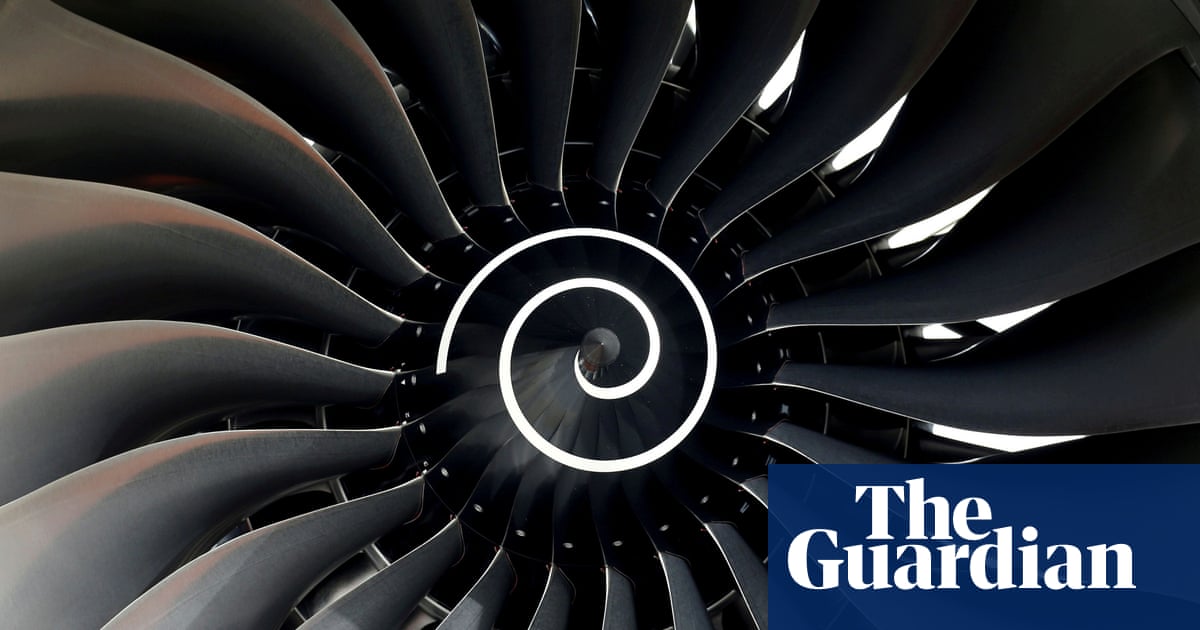
Rolls-Royce is no longer burning cash after making deep cost cuts in response to the coronavirus pandemic, the jet engine maker has said as it appeared to shrug off the fresh uncertainty facing the aviation industry as a result of the Omicron variant.
The FTSE 100 company has been hit hard because of its reliance on revenues from maintaining the jet engines it sells. The hours flown by its large engines remain at only half of pre-pandemic levels – albeit an improvement from the average of 43% in the first half of the year.
However, Warren East, Rolls-Royce’s chief executive, said the company returned to positive free cash flow in the third quarter of 2021 after a period in which spending has far outweighed inflows. Cash outflow in 2021 would be lower than the £2bn previously predicted, although that was flattered by delayed payments to some clients, he said.
There had been a gradual recovery in large-engine flying hours, said East, adding that the company is “controlling what we can control”. But he noted that the recovery had been uneven across different countries and its continuation was unlikely to be linear.
“What we’ve seen with the new variant is airlines opening new routes and then pausing,” said East. “It’s going to be a story of 10 steps forwards and two steps backwards.”
The emergence of new coronavirus variants represented small interruptions but would not put the aviation industry back further, he added.
Rolls-Royce has been forced to ask investors and government for £7bn in equity and debt to keep it afloat during the pandemic. It has also announced sales of businesses worth £2bn, and it will have cut 8,500 jobs by the end of the year.
The company has previously said it would be able to generate £750m a year in cash if flying hours reach 80% of pre-pandemic levels in 2022. Investors are worried its recovery will be delayed further by fresh travel restrictions while governments assess the threat posed by the Omicron variant.
Despite the company’s upbeat tone on Thursday, investors did not seem as convinced about the aviation sector’s recovery. Rolls-Royce shares were down 3% in morning trading, making it the FTSE 100’s biggest faller. The second biggest faller was International Airlines Group, the owner of British Airways.
Rolls-Royce also reported further problems in the supply chain of its power systems business. The unit, which builds large diesel engines mainly for yachts and trains, has taken on more importance as aerospace has suffered.
East said these problems included the shortage of semiconductors, an issue that has hit a range of sectors across the world including electronics and the car industry. The disruption has cost Rolls-Royce tens of millions of pounds this year, he said.












